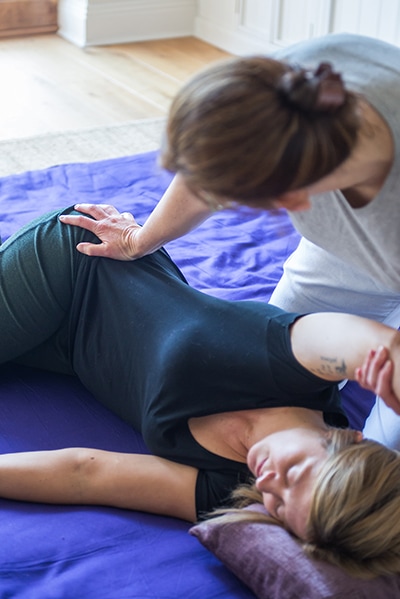Shiatsu......
|
We are all wanting to be seen and heard in our vulnerabilities, in all our love, joy, anger, grief, fear or shame. But we also stop ourselves from revealing this to others. Embarrassment, fear of appearing 'silly or 'out of control' or not wanting to repeat a previously painful experience can prevent us from showing our true selves. Is it safe ? we ask ourselves, to talk about our shame, Is it safe? to really go into our grief in front of these people. So we hide ourselves, inside ourselves, until our body eventually starts to let us know where we are hiding and how this begins to impact on our lives and how if we are unable to share authentically and without judgement this can become an unhealthy pattern in our lives, creating not only physical but emotional pain. Our bodies are constantly letting us know where it needs attention, it's own inner wisdom continually looking to heal. Working with the body's own inner wisdom Shiatsu touch can encourage health and wholeness. When the body is held, the pain acknowledged and the vulnerability allowed, shifts can happen and healing can begin. |
Shiatsu is a body therapy with its roots embedded in both Traditional Chinese Medicine and Traditional Japanese Massage. Shiatsu means “finger pressure”, it uses this finger pressure, hands, feet, elbows and knees as a way to connect to the body through the use of Meridian pathways and acupressure points.
For me, Shiatsu is teamwork, leading to endless possibilities with both of us sharing the load. Through dialogue and bodywork, I will support you in allowing whatever is present for you to be explored and help you work through any changes you wish to make. Regular or a series of treatments instigates the trust and connection that your body and mind desires to feel safe and open to releasing and changing. Shiatsu is practised fully clothed on a mattress on the floor, or I can accommodate your body's needs and use a raised couch. |
Thank you so much for your generosity of time and the overall treatment which had a profound effect on me at the time and which has continued to do so as the week has gone on, igniting things not just physically but also emotionally and particularly spiritually in a way in which I really wasn't expecting but which has been quite incredible and exciting and overwhelming.
Karen.... Cheltenham


